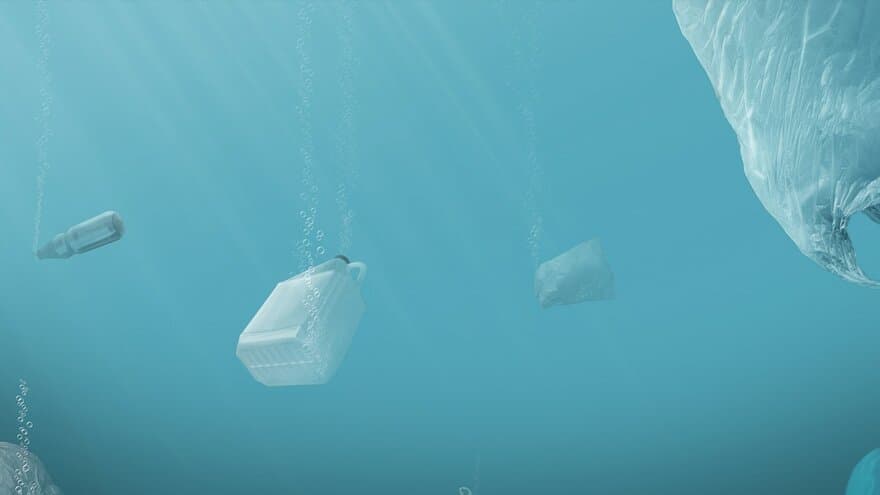NMBU
Background
This project is a part of NMBUs Sustainability Arenas 2021- 2024.
Plastic is derived from fossil fuels, is difficult to recycle (even in a society with effective waste collection systems), degrades slowly in nature (if at all), and has a tendency to convert to increasingly smaller particles (microplastics) that cause problems for living systems.
Solving the “plastic problem” is a huge task that requires a wide multi-disciplinary action that a University such as NMBU alone cannot muster. Still, NMBU can contribute by building on recent developments in the field and in its own competence. Besides, NMBU already has ongoing activities that touch upon the plastic problem but that, so far, have remained invisible in a “plastic context”.
Events
Objectives
Concrete operational goals:
- Establish and conduct one new course at MSc/PhD level on “Environmental Biotechnology”.
- Yearly open Sustainability Seminar on “Novel green (bio)technologies for a sustainable future”, for a wide target audience (industry, NGOs, politicians and students at all levels).
- Develop additional possibilities for outreach, stakeholder engagement, and Responsible Research and Innovation (RRI) activities.
- Establish and conduct an EVU course: Green (bio)technologies for sustainable solutions.
- Pilot experiments in the plastic area to strengthen our position in research applications and pave the way for developing good student projects.
- Develop relevant research projects (i.e., project applications), together with stake holders.
- Produce information material and/or website dedicated specifically to schools.
- Support plastic-dedicated BSc and MSc thesis work at NMBU.
More about the centre
In this centre, NMBU researchers with complementary competences will join forces to contribute to solving “the plastic problem”, in close collaboration with stakeholders. Building on strong existing competence, we will:
- Developing enzyme technology for degrading plastics to reusable building blocks
- Study plastic-degrading microbial communities to develop microbial processes for plastic management and to identify novel enzyme systems for plastic processing.
- Development of novel biodegradable plastics based on biomass.
- Study the environmental impacts of (micro)plastics in aquatic ecosystems
- Study the impact of (micro)plastics on the (gut) health and welfare of production animals and salmon.
We will join the forces of three Faculties (KBM, BioVit, MINA) and external partners, including plastic producers and environmental organizations. This initiative, with focus in plastic, is part of a wider initiative aiming at developing research, teaching and communication in environmental biotechnology, so, the use of innovative green bio(techno)logical solutions to obtain a cleaner environment.
Project leader: Prof. Vincent Eijsink, KBM; leader of the ERC-Synergy project Cube; specialty areas: enzymology, proteomics.
Other Founding PIs:
- Prof. Deborah Oughton, MINA; Leader of the only NMBU-hosted SFF (Norwegian Centre of Excellence). Specialty areas: ecotoxicology, nanoparticles, RRI.
- Ass Prof. Phil B Pope, Biovit; An ERC starting grant alumnus specialized in microbial ecology and holo-omics of host-microbe interactions. Project leader SuPAcow and ImprovAFish. Work package leader HoloRuminant and 3D'omics.
- Ass Prof. Simen R Sandve, Biovit; specialty areas: A genome specialist with strong interest in understanding how the environment regulate genes and impact organismal physiology.
- Prof. Gustav Vaaje-Kolstad, KBM; Specialty areas: Enzymology, microbial ecology, bioprocessing. Project manager ENZYCLIC.
- Prof. Yngvild Wasteson, VET; specialty areas: food saftey, One Health, antibiotic resistence. Project manager PLASTPATH.
(More PIs, including several young research talents are to be added)
Administrative coordinator: Tina Rise Tuveng, researcher, KBM.
The planned activities in the Centre, here collectively referred to as “plastic research” or “plastic activities”, are based on the following starting point:
- An ERC Synergy project (2020 – 2026) where we investigate how highly powerful copper redox enzymes can be tailored to modify inert plastic surfaces, thus facilitating subsequent separation, conversion and/or depolymerization processes. Our renown competence in (redox) enzymes is of particular relevance for the “plastic problem”,
- Extensive research on converting biomass to chemical building blocks for production of, e.g., biodegradable plastics (National Research Centre, “FME”, ending in 2023).
- Extensive research in industrial biotechnology, including meta-omics based enzyme discovery (National Research Centre, “SFI”, 2020-2028).
- Multiple meta-omics based projects within microbial ecology; world-leading competence and multiple projects in “holo-omic” studies of host-microbe interactions in animal and fish digestive systems.
- Research into nano- and microparticle ecotoxicology, including state-of the art characterization methodology and isotope tracing techniques (CERAD SFF 2014-2022)
